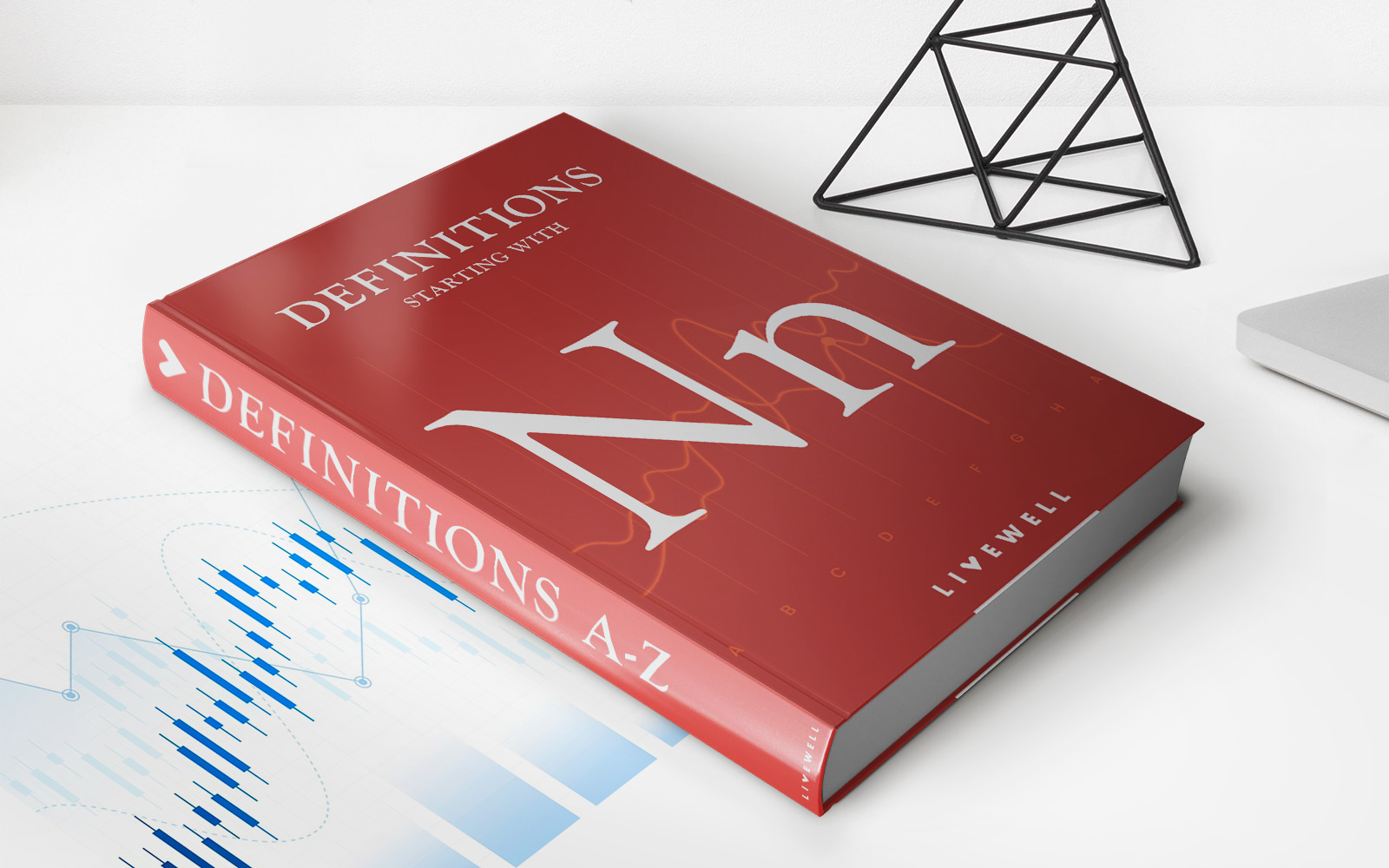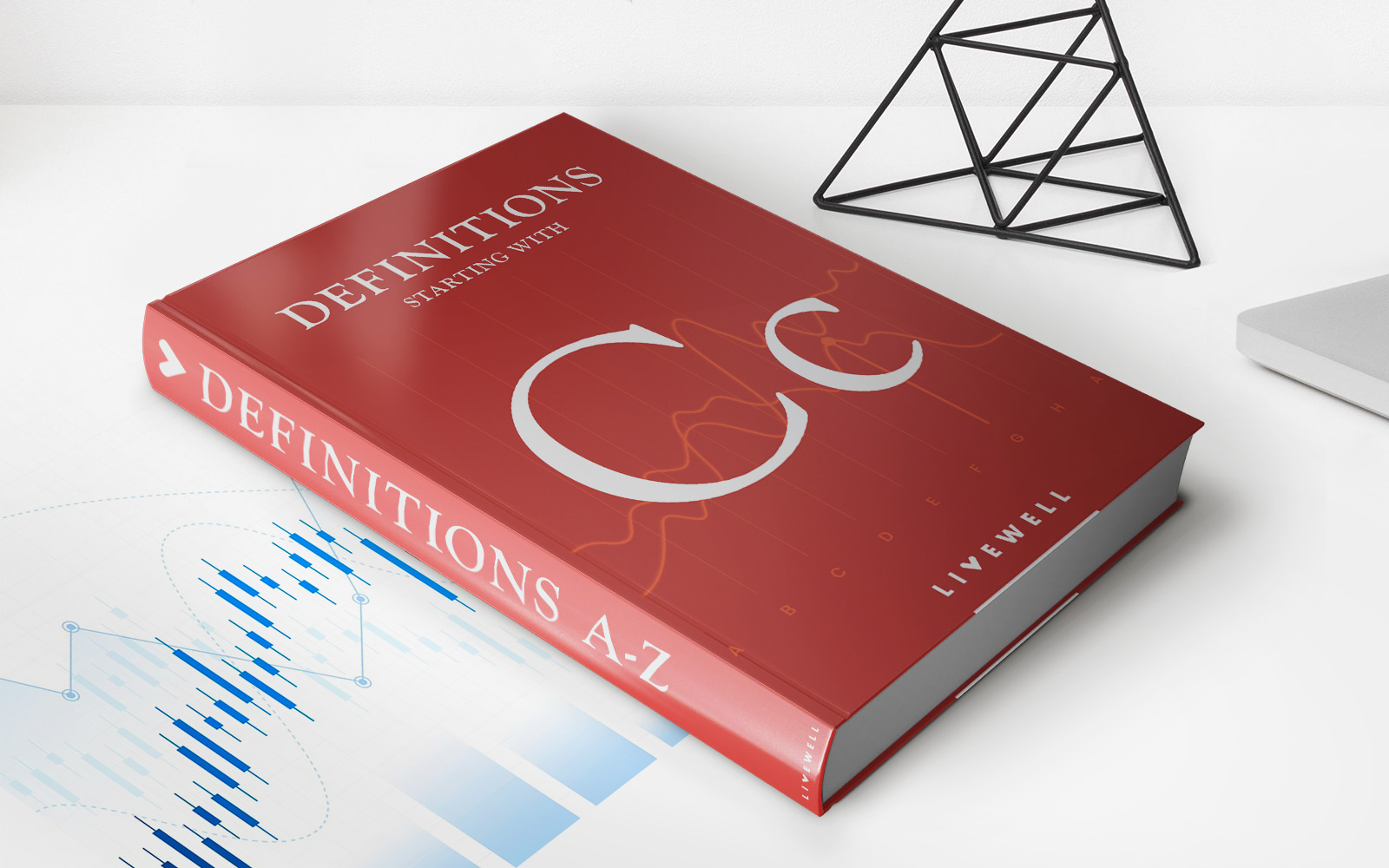Home>Finance>What Type Of Risk Are Certificates Of Deposit Insured By The NCUA And FDIC


Finance
What Type Of Risk Are Certificates Of Deposit Insured By The NCUA And FDIC
Modified: December 29, 2023
Learn more about how certificates of deposit (CDs) are insured by the NCUA and FDIC to protect your finances and minimize risk.
(Many of the links in this article redirect to a specific reviewed product. Your purchase of these products through affiliate links helps to generate commission for LiveWell, at no extra cost. Learn more)
Table of Contents
Introduction
Welcome to our comprehensive guide on the types of risk that Certificates of Deposit (CDs) are insured by the National Credit Union Administration (NCUA) and the Federal Deposit Insurance Corporation (FDIC). If you’re an investor or someone looking to grow your savings, understanding the safety and security of your investments is crucial. CDs are a popular and relatively low-risk investment vehicle that can provide you with a guaranteed return over a specific period of time. However, it’s important to know how they are insured to protect your hard-earned money.
Both the NCUA and the FDIC play a vital role in safeguarding the deposits of individuals and businesses. They provide insurance coverage in the event of bank or credit union failures, ensuring that depositors do not lose their money. In this article, we will explore how the NCUA and the FDIC insure Certificates of Deposit and examine the similarities and differences between these two institutions.
Understanding the insurance coverage of your CDs is crucial to making informed investment decisions. By the end of this article, you will have a comprehensive understanding of the risks associated with CDs and how the NCUA and the FDIC protect your deposits.
What are Certificates of Deposit (CDs)?
Certificates of Deposit (CDs) are financial products offered by banks and credit unions that allow individuals to deposit a sum of money for a fixed period of time at a specified interest rate. They are often chosen by investors looking for a safe and stable investment option.
When you open a CD, you agree to keep your money in the account for a predetermined period. The length of time can vary, ranging from a few months to several years. During this time, you cannot withdraw the funds without incurring a penalty, making CDs a long-term savings option.
CDs are considered to be low-risk investments because they offer a fixed interest rate that is higher than a regular savings account. This means that you can earn a predictable return on your investment. The interest rate for a CD is determined by various factors, including the current market conditions, the length of the deposit term, and the amount of money deposited.
One of the key features of a CD is that it is insured by either the National Credit Union Administration (NCUA) or the Federal Deposit Insurance Corporation (FDIC), depending on whether it is offered by a credit union or a bank, respectively. This insurance provides depositors with protection against the risk of loss in the event that the financial institution fails.
Now that we have a basic understanding of what Certificates of Deposit are, let’s explore how the NCUA and the FDIC ensure the safety of your investments.
What is the NCUA?
The National Credit Union Administration (NCUA) is an independent federal agency that regulates and supervises federal credit unions in the United States. Its primary mission is to ensure the safety and soundness of credit unions and protect the deposits of members.
The NCUA was established in 1970 as a result of the Federal Credit Union Act. It operates as a self-funded agency, meaning it is not funded by taxpayer dollars but rather through assessments on credit unions and earnings from investment activities.
One of the main responsibilities of the NCUA is to administer the National Credit Union Share Insurance Fund (NCUSIF). This fund provides deposit insurance coverage to credit union members in the event of a credit union failure. Similar to the Federal Deposit Insurance Corporation (FDIC) for banks, the NCUSIF provides up to $250,000 in insurance coverage per individual depositor.
The NCUA’s insurance coverage extends to a wide range of deposit accounts, including Certificates of Deposit (CDs). This means that if the credit union where you hold your CD fails, the NCUA will step in and reimburse you for your insured deposits up to the coverage limit.
In addition to its insurance function, the NCUA also regulates credit unions to ensure they are operating in compliance with federal laws and regulations. This includes conducting examinations, enforcing consumer protection rules, and promoting financial literacy among credit union members.
It’s important to note that the NCUA only provides insurance coverage for credit unions that are federally chartered or have chosen to participate in the NCUSIF program. State-chartered credit unions may have their own insurance programs, which may or may not provide the same level of coverage as the NCUA.
Now that we understand the role of the NCUA in insuring Certificates of Deposit, let’s explore how their coverage compares to that of the FDIC.
How does the NCUA insure Certificates of Deposit?
The NCUA insures Certificates of Deposit (CDs) through its National Credit Union Share Insurance Fund (NCUSIF). This fund provides insurance coverage to credit union members in the event of a credit union failure.
When you open a CD at a credit union that is insured by the NCUA, your deposits are automatically covered up to $250,000 per individual depositor. This means that if the credit union were to fail and be unable to return your CD deposits, the NCUA would step in and reimburse you for your insured amount.
It’s important to note that the $250,000 coverage limit applies to the total deposits you have at the credit union, including your CDs, savings accounts, and other deposit accounts. If you have multiple CDs or other deposit accounts at the same credit union, the total coverage amount is capped at $250,000.
The NCUA insurance coverage is automatic and does not require any action on your part. As long as your credit union is insured by the NCUA and your CD deposit falls within the coverage limits, your deposits are protected.
It’s worth mentioning that the NCUA only provides insurance coverage for credit unions that are federally chartered or have chosen to participate in the NCUSIF program. It’s essential to verify that the credit union where you plan to open a CD is insured by the NCUA to ensure your deposits are protected.
Lastly, it’s important to keep in mind that the NCUA insurance coverage applies to the principal amount of your CD and any accrued interest up to the date of the credit union’s failure. If you have interest that has not yet been credited to your CD, it may not be covered by the insurance.
With the NCUA’s insurance coverage in place, you can have peace of mind knowing that your Certificates of Deposit are protected in the unfortunate event of a credit union failure.
What is the FDIC?
The Federal Deposit Insurance Corporation (FDIC) is an independent federal agency in the United States that provides deposit insurance to banks and savings institutions. Established in 1933 as a response to the Great Depression, the FDIC’s primary mission is to maintain stability and public confidence in the nation’s banking system.
The FDIC achieves this mission by guaranteeing deposits in member banks up to $250,000 per depositor, per insured bank. This means that if a bank where you hold your deposits were to fail, the FDIC would step in and reimburse you for your insured funds, including deposits held in Certificates of Deposit (CDs).
The FDIC is funded by premiums paid by member banks and earnings from its investment activities. It does not rely on taxpayer dollars to fulfill its insurance obligations. This financial strength enables the FDIC to provide stability to the banking system and safeguard the hard-earned money of depositors.
In addition to its deposit insurance function, the FDIC also regulates and supervises banks to ensure they operate in a safe and sound manner. It conducts regular examinations to assess the financial health and compliance of banks with federal laws and regulations. The FDIC also plays a crucial role in managing and resolving failed banks, protecting the insured deposits of depositors.
It’s important to note that not all banks are members of the FDIC. To determine if your bank is insured by the FDIC, you can look for the FDIC logo at the bank branch or check the FDIC’s online database. Banks that are members of the FDIC typically display signs or stickers indicating their membership in the deposit area of their branches.
By providing deposit insurance coverage, the FDIC ensures that Certificates of Deposit held in banks are protected, giving depositors confidence in the safety and security of their investments.
How does the FDIC insure Certificates of Deposit?
The Federal Deposit Insurance Corporation (FDIC) insures Certificates of Deposit (CDs) through its Deposit Insurance Fund (DIF). This fund serves as a safety net, providing insurance coverage to depositors in the event of a bank failure.
When you open a CD at a bank insured by the FDIC, your deposits are automatically covered up to $250,000 per depositor, per insured bank. This means that if the bank were to fail and be unable to return your CD deposits, the FDIC would step in and reimburse you for your insured amount.
The FDIC insurance coverage extends to a variety of deposit accounts, including CDs. It ensures that your principal amount plus any accrued interest up to the date of the bank’s failure will be reimbursed.
It’s important to note that the $250,000 coverage limit applies to the total deposits you have at the bank, including your CDs, savings accounts, checking accounts, and other deposit accounts. If you have multiple CDs or deposit accounts at the same bank, the total coverage amount is capped at $250,000.
It’s worth mentioning that the FDIC insurance coverage is automatic and does not require any action on your part. As long as your bank is insured by the FDIC and your CD deposit falls within the coverage limits, your deposits are protected.
When considering opening a CD, it’s important to verify that the bank is FDIC-insured. You can do this by looking for the FDIC logo displayed at the bank branch or checking the FDIC’s online database. Banks that are members of the FDIC generally provide information about their membership, including the FDIC logo, on their website and in banking materials.
The FDIC insurance coverage provides peace of mind to depositors, assuring them that their Certificates of Deposit are protected even in the unfortunate event of a bank failure. It is essential to have a clear understanding of the FDIC insurance limits and the safety provided by this government agency when considering CD investments.
Similarities between NCUA and FDIC Insurance
While the National Credit Union Administration (NCUA) and the Federal Deposit Insurance Corporation (FDIC) serve different types of financial institutions, there are several similarities in how they provide insurance coverage to depositors, including those with Certificates of Deposit (CDs). Here are some key similarities:
- Insurance Coverage Limits: Both the NCUA and the FDIC provide up to $250,000 in insurance coverage per depositor, per insured institution. This means that if you have multiple CDs or deposit accounts at the same credit union or bank, the total coverage amount is capped at $250,000.
- Automatic Coverage: The insurance coverage provided by both the NCUA and the FDIC is automatic. When you open a CD at an insured credit union or bank, your deposits are automatically covered up to the specified limits. There is no need to apply for or purchase separate insurance for your CDs.
- Principal and Interest Coverage: Both the NCUA and the FDIC insurance coverage extends to the principal amount of your CD and any accrued interest up to the date of the financial institution’s failure. This ensures that you are protected for both your initial investment and the interest earned during the period.
- Backed by the U.S. Government: Both NCUA and FDIC insurance are backed by the full faith and credit of the U.S. government. This means that even in times of financial crisis, the government stands behind the insurance coverage and is committed to reimbursing depositors for their insured funds.
- Free of Charge: The insurance coverage provided by both the NCUA and the FDIC is free of charge for depositors. The costs of the insurance programs are covered by assessments on member credit unions or banks.
These similarities between NCUA and FDIC insurance provide depositors with a sense of security and confidence in their investments, knowing that their CDs are protected by reputable government agencies.
Differences between NCUA and FDIC Insurance
While the National Credit Union Administration (NCUA) and the Federal Deposit Insurance Corporation (FDIC) both provide deposit insurance coverage, there are some key differences between the two agencies. These differences arise due to their distinct mandates and the types of financial institutions they oversee. Here are some important differences to note:
- Type of Institutions Covered: The NCUA provides insurance coverage for deposits held in federally chartered credit unions and certain state-chartered credit unions that have chosen to participate in the NCUA’s insurance program. On the other hand, the FDIC covers deposits held in banks and savings institutions, both of which may be either federally or state-chartered.
- Funding Mechanism: The NCUA and the FDIC have different funding mechanisms to finance their insurance programs. The NCUA’s National Credit Union Share Insurance Fund (NCUSIF) is funded primarily through assessments paid by credit unions. The FDIC’s Deposit Insurance Fund (DIF) is funded through premiums assessed on member banks and earnings from its investment activities.
- Coverage Limits for Joint Accounts: The NCUA and the FDIC have different coverage limits for joint accounts, where two or more individuals are named as account holders. The NCUA provides separate coverage of up to $250,000 per co-owner, while the FDIC provides coverage of up to $250,000 for each co-owner, similar to individual accounts.
- Definitions of “Ownership Categories”: The NCUA and the FDIC have different definitions of ownership categories for deposit accounts. This can affect the overall coverage available to depositors. It’s important to understand the specific rules and limits for each agency to maximize your deposit insurance coverage.
- Extent of Coverage for Certain Account Types: The NCUA and the FDIC differ in the extent of coverage provided for certain account types. For example, the NCUA generally provides additional coverage for certain retirement accounts, such as Individual Retirement Accounts (IRAs), up to $250,000. The FDIC’s coverage for retirement accounts is generally included within the $250,000 per depositor limit.
It is important for depositors to be aware of these differences and to understand the specifics of the insurance coverage provided by the NCUA and the FDIC. Maintaining accounts within the coverage limits and properly structuring accounts can help maximize the protection provided by these agencies.
Conclusion
Understanding the types of risk that Certificates of Deposit (CDs) are insured by the National Credit Union Administration (NCUA) and the Federal Deposit Insurance Corporation (FDIC) is essential for any investor or individual looking to safeguard their savings. Both the NCUA and FDIC play critical roles in ensuring the safety and stability of the United States’ banking system.
When it comes to CD investments, the NCUA provides insurance coverage for CDs held at federally chartered credit unions and select state-chartered credit unions participating in the NCUA insurance program. On the other hand, the FDIC offers insurance coverage for CDs held at banks and savings institutions, both federally and state-chartered. Both agencies provide coverage of up to $250,000 per depositor, per insured institution.
Regardless of whether your CD is insured by the NCUA or the FDIC, the insurance coverage is automatic and free of charge. It provides protection for your principal amount and any accrued interest up to the date of a credit union’s or bank’s failure.
However, there are differences between NCUA and FDIC insurance coverage, such as the type of institutions covered, funding mechanisms, coverage limits for joint accounts, and definitions of ownership categories. Understanding these differences can help depositors maximize their insurance coverage.
In conclusion, CDs are popular investment vehicles that offer a relatively low-risk way to grow your savings. The NCUA and the FDIC play crucial roles in insuring the deposits held in CDs, ensuring that depositors are protected in the event of a credit union or bank failure.
By being knowledgeable about the insurance coverage provided by the NCUA and the FDIC, individuals can make informed decisions about their CD investments and have peace of mind knowing that their hard-earned money is secure.














